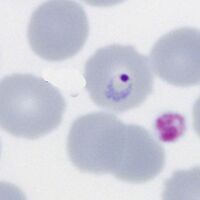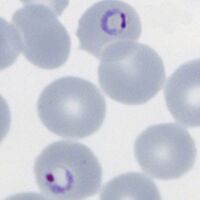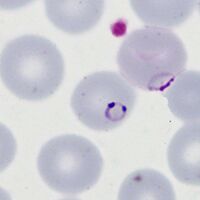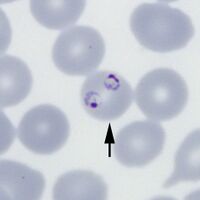Gallery of early trophozoites: Difference between revisions
From haematologyetc.co.uk
No edit summary |
No edit summary |
||
| Line 15: | Line 15: | ||
<gallery mode="traditional" widths=200px heights=200px> | <gallery mode="traditional" widths=200px heights=200px> | ||
File:PFET1g.jpg|<span style="font-size:80%"> | File:PFET1g.jpg|<span style="font-size:80%">Fine ring form</span>|link={{filepath:PFET1g.jpg}} | ||
File:PFET2g.jpg|<span style="font-size:80%"> | File:PFET2g.jpg|<span style="font-size:80%">Double dot form and normal ring</span>|link={{filepath:PFET2g.jpg}} | ||
File: | File:PFET3g.jpg|<span style="font-size:80%">Accolé and double dot forms</span>|link={{filepath:PFET3g.jpg}} | ||
File:PFET4p.jpg|<span style="font-size:80%">'''Multiple parasites'''</span>|link={{filepath:PFET4p.jpg}} | File:PFET4p.jpg|<span style="font-size:80%">'''Multiple parasites'''</span>|link={{filepath:PFET4p.jpg}} | ||
</gallery>" | </gallery>" | ||
Revision as of 21:46, 22 May 2024
Navigation
Go Back
|



